How to Install or Uninstall Windows PowerShell ISE in Windows 10
Starting with Windows 10 build 19037, the PowerShell ISE app is now an options feature installed by default (Feature on Demand). This means that it is now listed in the Optional Features, you will be able to install or uninstall it easily.
Advertisеment
PowerShell is an advanced form of command prompt. It is extended with a huge set of ready-to-use cmdlets and comes with the ability to use .NET framework/C# in various scenarios.

PowerShell was initially released in November 2006 for Windows XP SP2, Windows Server 2003 SP1 and Windows Vista. This days, it is a different, open source product. PowerShell 5.1 introduced editions to the app. Microsoft first announced PowerShell Core edition on 18 August 2016, along with their decision to make the product cross-platform, independent of Windows, free and open source. It was released on 10 January 2018 to Windows, macOS and Linux users. Now it has its own support lifecycle.
What is Windows PowerShell ISE
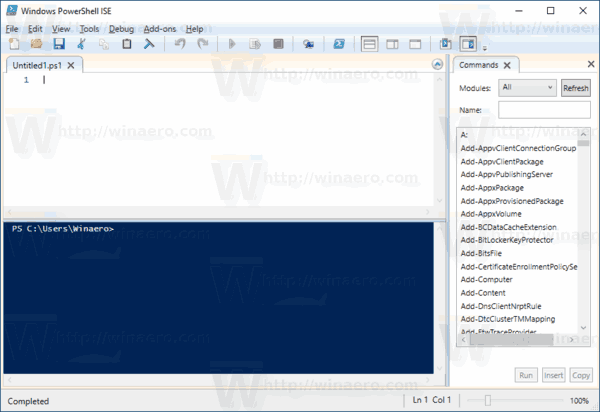
Windows includes a GUI tool, PowerShell ISE, which allows editing and debugging scripts in a useful way. In Windows PowerShell ISE, you can run commands and write, test, and debug scripts in a single Windows-based graphic user interface with multiline editing, tab completion, syntax coloring, selective execution, context-sensitive help, and support for right-to-left languages. You can use menu items and keyboard shortcuts to perform many of the same tasks that you would perform in the Windows PowerShell console. For example, when you debug a script in the Windows PowerShell ISE, to set a line breakpoint in a script, right-click the line of code, and then click Toggle Breakpoint.
In recent Windows 10 versions, PowerShell ISE is an optional feature. To install or uninstall PowerShell ISE, you can use either Settings, or the command prompt.
To Install or Uninstall Windows PowerShell ISE in Windows 10,
- Open Settings.
- Navigate to Apps > Apps & features.
- Click on the Optional features link on the right.
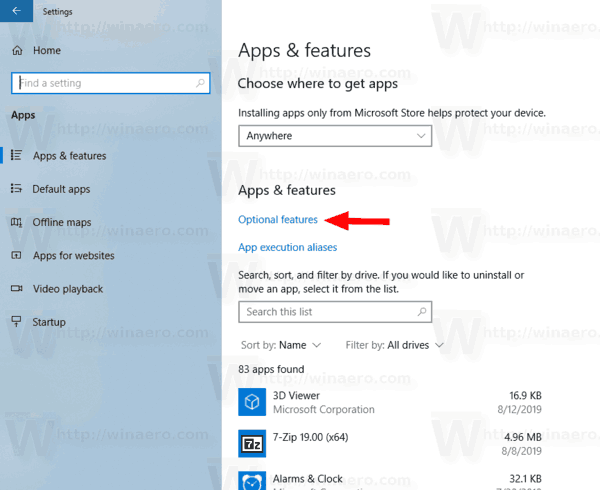
- To uninstall Windows PowerShell ISE, click on the Windows PowerShell Integrated Scripting Environment under Installed features, and click on Uninstall.
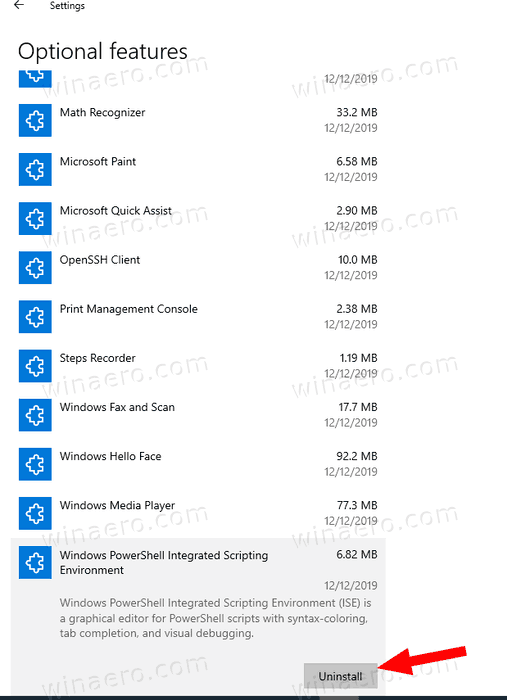
- To install the uninstalled Windows PowerShell ISE, click on Add a feature.
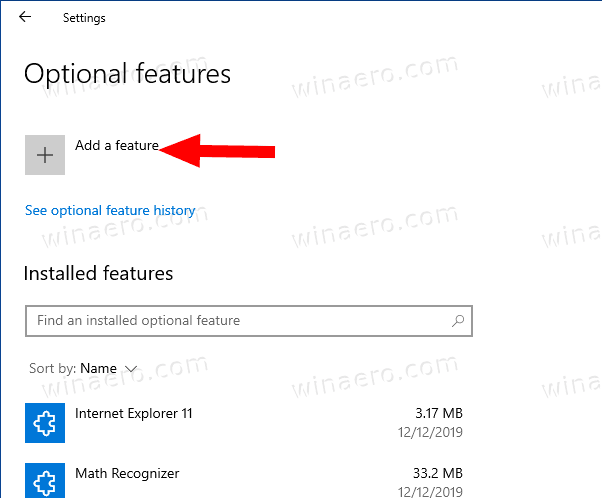
- Check Windows PowerShell Integrated Scripting Environment, and click on Install.
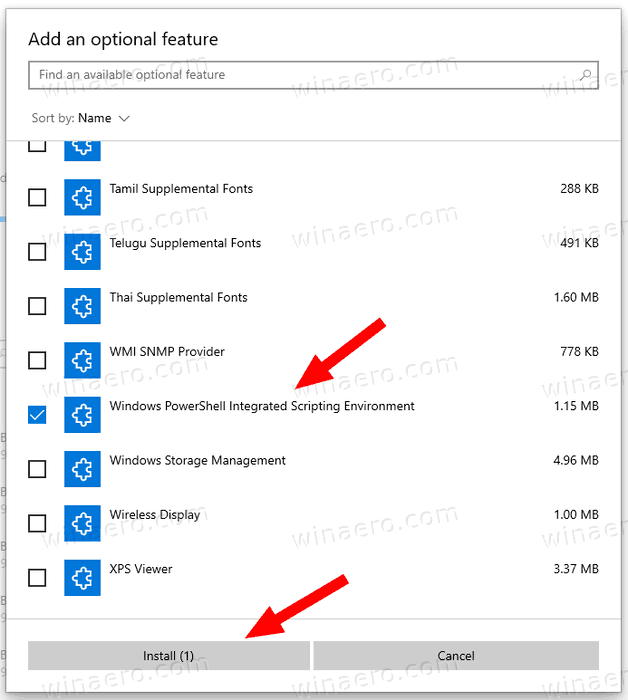
You are done. Alternatively, you can use the command prompt console to manage optional features.
Install or Uninstall PowerShell ISE in Command Prompt
- Open an elevated command prompt.
- To uninstall PowerShell ISE, use the command:
DISM /Online /Remove-Capability /CapabilityName:Microsoft.Windows.PowerShell.ISE~~~~0.0.1.0.
- To install the uninstalled PowerShell ISE, type or copy-paste the following command:
DISM /Online /Add-Capability /CapabilityName:Microsoft.Windows.PowerShell.ISE~~~~0.0.1.0.
That's it.
Articles of interest:
- Uninstall WordPad in Windows 10
- Manage Optional Features in Windows 10
- Uninstall Microsoft Paint in Windows 10 (mspaint)
Support us
Winaero greatly relies on your support. You can help the site keep bringing you interesting and useful content and software by using these options:

I got error 0x800f0950 when trying to install PowerShell ISE with Command Prompt.
(Before, Uninstall was successful).